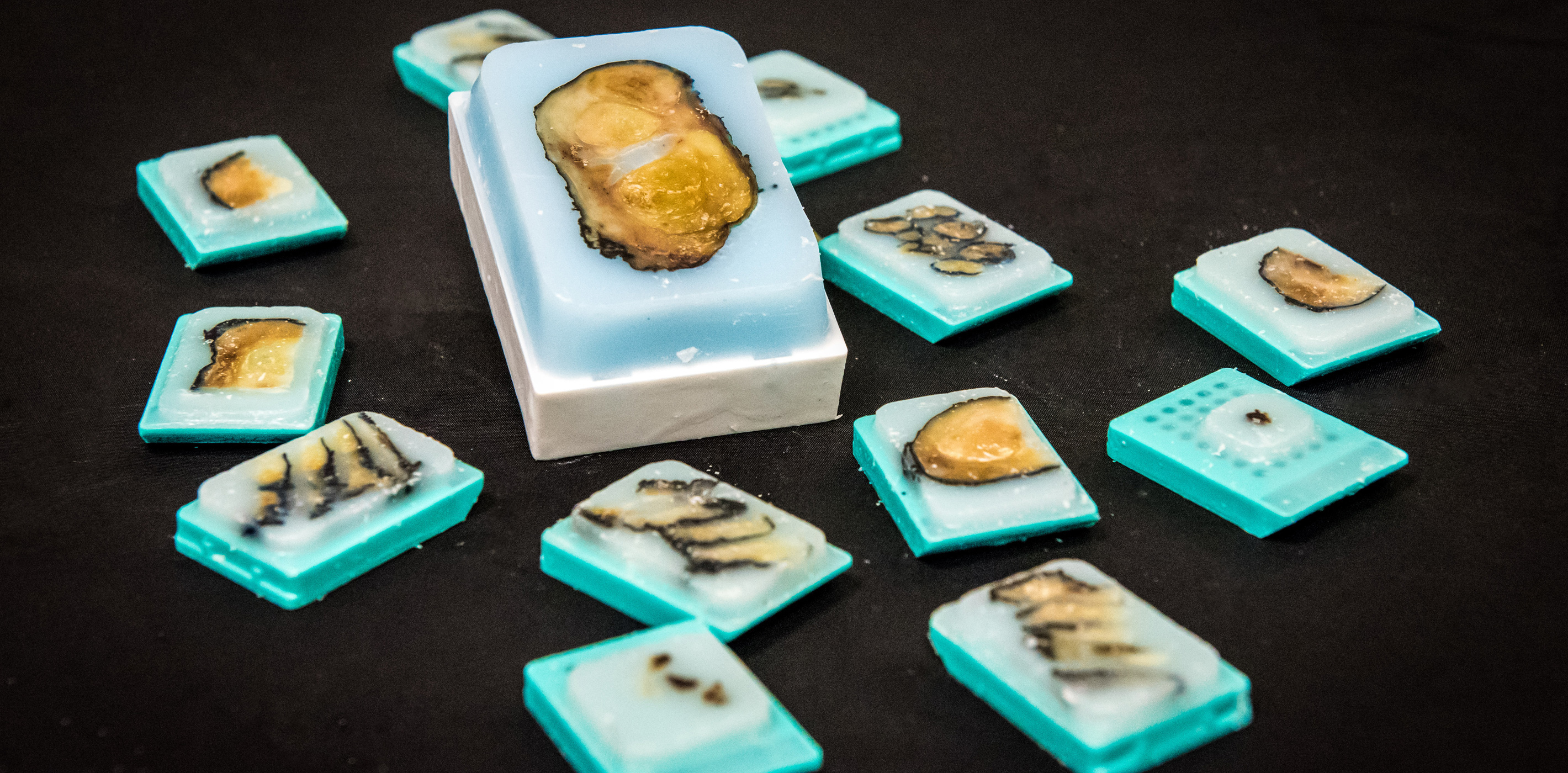Submitted on March 15, 2016

The UCSF Department of Urology recently passed an important milestone: the 4,000th prostate cancer patient consented to donate tissue specimens for research. The department’s internationally recognized biospecimen bank has been a valuable resource for scores of researchers seeking to identify biomarkers and other tumor characteristics that can improve diagnosis and treatment of this common cancer.
“Without willing subjects, research could not proceed,” states June M. Chan, ScD, director of the Urologic Clinical and Translational Science program.
The biobank was started in the early 1990s, but added resources and infrastructure when UCSF was designated in 2001 as a National Cancer Institute Specialized Center of Research Excellence (SPORE) in prostate cancer. To help foster collaborative research across disciplines, a goal of the SPORE, the department added a genitourinary pathologist, Jeffry Simko, MD, PhD, who oversees the bank’s operations.
Scores of researchers have used samples from the UCSF biobank over the years for wide-ranging studies on everything from telomere length in prostate cancer DNA to the validation of new genomic diagnostic tests. Simko, Chan and a team of scientists and statisticians review applications, which are presented by investigators at a monthly tissue committee meeting. “Our goal is to be as collaborative as possible,” said Chan.
Once approved, the projects are delegated to Imelda Tenggara, director of research resources, who is responsible for identifying which samples are needed, de-identifying the samples, and sending them on to collaborators.
“Running a biobank is not one person’s effort,” says Tenggara. “There are dozens of people and hundreds of touch points along the way that need managing.”
Patient participation is high
Patients learn about the opportunity to participate in the biobank before prostate cancer surgery, either from their physician or through printed material. If they agree to donate specimens, the entire prostate gland is preserved in the bank along with a blood sample taken the day of surgery and a urine sample. Men also consent to sharing information on their treatment and health after surgery, which allows researchers to correlate tumor characteristics with outcomes. Over the years, participation has been very high—close to 90 percent of men who undergo prostate cancer surgery at UCSF agree to donate tissue.
Tissue preserved in two ways
The UCSF biobank has been valuable to researchers not only because of its size, but also because of how tissues are stored. The most common method of banking tissue is to preserve it in formalin and then embed it in paraffin wax. Hospital pathology departments around the country use this method to preserve tissue removed during surgery, as required by state laws. Since 2000, the UCSF bank has also preserved a portion of each prostate sample by freezing it. These frozen tissue samples have made UCSF a unique research resource, as new genetic analysis technologies are best developed in fresh-frozen tissues with intact nucleic acid.
Because of the size of its frozen tissue bank, UCSF participated in the development of some of the earliest DNA and RNA molecular profiling studies for prostate cancer. Once these were developed in frozen tissue samples, manufacturers were able to adapt them for use in the formalin-preserved samples that are in common use in the United States. The department has collaborated with private industry on many of these translational projects, including companies such as Myriad Genetic Laboratories, Genomic Health, and GenomeDX Biosciences.
"It’s heartening to think that we have amassed over 4,000 prostate specimens since our initial collection efforts in the early 1990s,” said Department Chair Peter R. Carroll, MD, MPH. “We are grateful to the thousands of volunteers who have helped us come closer to understanding and curing prostate cancer by contributing to this research resource.”